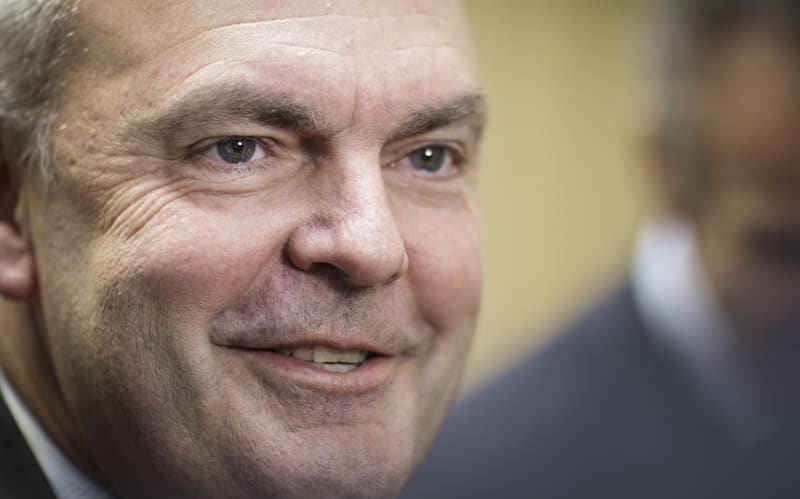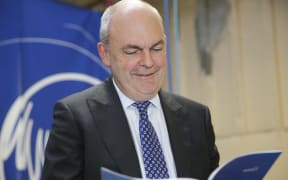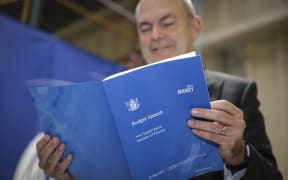Analysis - It's the finance minister's big day today.
Steven Joyce is to present his maiden budget, one that other countries would look upon with envy.
A strong economy has bolstered the Crown's books. ANZ senior economist Phil Borkin said tax revenue was running about 1 percent ahead of forecasts.
"And over 7 percent above the same period last year; 7 percent tax growth in itself is saying something about the economy."
- There will be live coverage on Budget 2017 from 1pm on rnz.co.nz, with a video livestream from Parliament from 2pm, and live commentary and analysis on air on RNZ National.

Steven Joyce will present his first budget today. Photo: RNZ / Rebekah Parsons-King
Mr Joyce has made familiar noises about keeping spending in check despite it being an election year.
"In terms of lolly scramble, I have seen so many people requesting so much over the last few days I think I would have to deliver five or six Budgets on Thursday to meet all their expectations of different sector groups," he said.
"It is about balancing all the different concerns and interests that people have."
And he has kept his word.
The government's steady drip feed of pre-budget initiatives over the last month appears impressive.
The more prominent included $321 million on funding for social investment initiatives to help the most vulnerable in society, and $304m to the screen industry.
But as the money is spread over four years, and in some cases includes the redistribution of existing funding, the boost is less grand than initially claimed.
Mr Joyce appears well on his way to remaining within the government's self-imposed $1.5bn cap on new spending this year.
Still, Mr Joyce has yet to reveal his plans around "family incomes".
Treasury forecast an operating surplus of about $500m for the June financial year. Nine months in, the surplus stands at $1.5bn.
With the economy running hotter than expected, the government can expect even fatter coffers, which in December had been forecast to rise from $500m this year to $8.5bn by June 2021.
Some of the extra cash will go on reducing debt to 20 percent of GDP by 2020 to act as insurance against any unexpected shocks to the economy.
Mr Joyce has already added an extended target of reducing debt to between 10 and 15 percent of GDP by 2025.
Some money for a family support package has also been signalled, which is expected to be linked to increasing Working for Families payments and possibly lifting the accommodation supplement.
And Mr Joyce is committed to lowering the tax burden on lower and middle income earners.
Cuts to income tax rates are off the table, but changes to tax thresholds are likely.
Mr Joyce has talked about wanting to raise the threshold for the median wage. At the moment a 30 percent tax rate kicks in for earnings over $48,000.
Some warn the changes will not be cheap.
"Just bear in mind that even $20 extra per week for the average employee would cost the government in the order of $2 to 3bn on an annual basis," BNZ senior economist Craig Ebert said.
Treasury's economic forecasts of average growth of around 3 percent a year over the forecast period is also too optimistic for some.
"The business cycle tends to turn every ten years so you need to allow for the risk of a downturn," Mr Borkin said.







